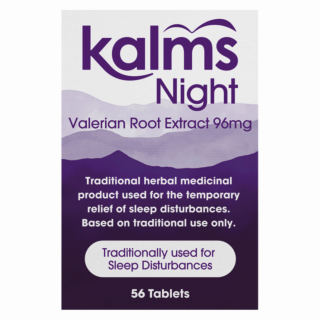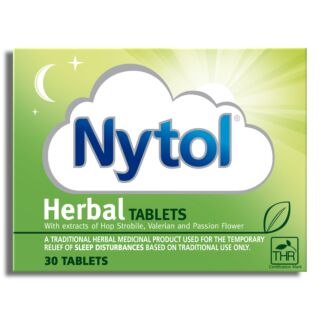8 early signs of the menopause

The menopause is a natural, albeit uncomfortable stage that every woman experiences, usually between the ages of 45 to 55. The menopause occurs when your ovaries stop working, meaning your periods cease and you are no longer able to become pregnant.
You may recognise some of the most common symptoms such as hot flushes and mood changes, but there are others, too, and some women might not have any symptoms at all!
In this guide, we’ll discuss the 8 early signs of the menopause so you have a better idea of what you can experience when you go through this change, helping you to get the support you need to make this difficult time in your life that bit easier.
What is the menopause?
The menopause is a stage that women usually experience when they are between the ages of 45 to 55, but the menopause can also occur in around 1 in 100 women before they reach 40 years of age. This is known as premature menopause or premature ovarian insufficiency.
The menopause refers to when a woman stops having her periods. This can be sudden or gradual, for example, your periods may become infrequent before they stop altogether. The stage before your periods stop is called the perimenopausal stage.
When your periods stop, this means your oestrogen levels are in decline, your ovaries are no longer working and you can’t become pregnant. In the UK, the average age for a woman to go through the menopause is 51.
The early signs of the menopause
The majority of women will experience menopausal symptoms, which can have a significant, negative impact on your daily life.
The symptoms of the menopause usually begin months, and sometimes years, before your periods stop, and they can last for around 4 years after your last period, but certain women will experience symptoms for much longer.
Infrequent or absent periods
Lighter, heavier, absent or infrequent periods aren’t always a sign that your body is going through the menopause. An absent period may be a sign of pregnancy if you’ve had sex, while other changes may be due to stress, sudden weight loss, being overweight, doing too much exercise, medication and medical conditions.
Changes to your periods aren’t always a cause for concern, but they do need to be investigated if this is new for you. It’s important to speak to your GP if your periods stop and you’re at menopausal age, in addition to if your periods stop before you’re 45 or if you’re still bleeding when you’re over 55.
Hot flushes
It’s normal to have a hot flush when it’s warm, or sometimes we flush when we are embarrassed or stressed. Hot flushes during the menopause, however, can be sudden and unexpected.
You may experience a sudden feeling of heat, a red, flushed face and break out in sweat. Some women also experience a fast heart rate and chills, too. If you’re at menopausal age and you’re frequently experiening hot flushes with no obvious cause, you may be entering the menopause.

Night sweats
It’s common to sweat during hot, summer nights or if your night clothes and bedding are making you warm. But if you find that your night sweats are severe and your clothes and bedding are soaking wet, or your night sweats regularly wake you or worry you, you should speak to your GP for advice.
Vaginal dryness
Again, just because you’re experiencing vaginal dryness it doesn’t automatically mean you’re going through the menopause. Vaginal dryness has numerous causes, such as not being aroused, using perfumed products inside your vagina, breastfeeding, certain medicines, and of course, the menopause.
Vaginal dryness can occur during the menopause due to the changes in your hormone levels, and your GP may offer you a hormone treatment known as hormone replacement therapy (HRT) to increase the levels of oestrogen in your body.
There are other things you can do to ease your vaginal dryness, too, like using water-based lubricants and unperfumed soaps and creams.
Sleep problems
Many women going through the menopause develop sleep problems. This is a secondary symptom caused by other symptoms of the menopause, such as hot flushes, night sweats and mood changes.
Sleep deprivation can have a detrimental impact on your daily life, and it may only improve after your other symptoms have been managed.
Mood changes
The menopause causes oestrogen to deplete, which may play a role in your mood changes. You may experience a low mood or anxiety, or it can make any existing mental health conditions worse.
Talking therapies such as cognitive behavioural therapy (CBT) can help with low mood and anxiety, and even hot flushes and night sweats.
Reduced sex drive
A reduced sex drive is a common part of ageing, and it’s something many women experience as they reach the menopause. This is mainly because of the drop in the sex hormones, oestrogen and testosterone.
If you’re concerned about your low sex drive, speak to your GP. They may ask if you’re experiencing any other symptoms and may request a blood test to look at your hormone levels.
Memory and concentration problems
Memory and concentration issues are common during the menopause, and the symptoms are usually mild. You may forget where you placed your phone or your keys, and many women describe it as ‘brain fog’. However, if these issues are beginning to affect your daily life, you should speak to your GP for advice.

The menopause is a huge, inevitable change for women as they get older, and for some, the symptoms can be severe and negatively impact daily life. It can cause sleep problems that can affect your working life, and the mood changes may interfere with the relationships you have with your partner and your family.
Don’t struggle alone–if you think you're entering the menopause or you’re struggling with the symptoms, it’s important that you seek advice from your GP. If you need anymore information about the menopause, visit the NHS website.







